Why DEI in Education Strengthens, Not Weakens, American Excellence
Rep. Walberg described DEI as antithetical to American exceptionalism, claiming it replaces merit, skills, and ability with divisive policies (as reported by Fox News). But that view reflects a fundamental misunderstanding of what DEI really does—and who it benefits.
Let me be clear: DEI is not about diminishing merit. It’s about ensuring that merit, skills, and ability are recognized fairly—regardless of someone’s background, identity, or circumstances. Without DEI, many talented individuals remain unseen, unheard, and undervalued because systemic barriers block their path to opportunity.
Nowhere is this more important than in education. Schools and universities are where potential is nurtured and developed, yet we know that not every student starts on an equal footing. Some students face challenges that have nothing to do with their ability or ambition—such as poverty, language barriers, or disabilities. DEI in education ensures these barriers are addressed so that every student has the chance to succeed.
Let’s break it down:
Diversity in education means students learn from and with people from different backgrounds, preparing them to succeed in a diverse and interconnected world. It’s not about forcing conformity but fostering creativity and innovation by exposing students to new perspectives.
Equity ensures that resources are distributed based on need. This isn’t about handouts—it’s about leveling the playing field. A student with a learning disability might need accommodations to demonstrate their skills fully. That’s equity in action.
Inclusion creates environments where every student feels safe, valued, and able to participate fully. Without it, we risk alienating students who don’t see themselves represented or who feel excluded from opportunities.
Rep. Walberg also suggested that DEI tells students what to think instead of how to think. But DEI does the opposite. By introducing diverse perspectives, it teaches students critical thinking, empathy, and problem-solving—skills they’ll need in a rapidly changing world.
So what happens when we remove DEI from education? We risk perpetuating inequities that limit the potential of countless students. We create classrooms that don’t reflect the realities of the world students will enter. And we miss out on the full range of talent and innovation that diversity brings.
This isn’t just a loss for the students who face the most barriers—it’s a loss for everyone. When students of all backgrounds succeed, they contribute to stronger communities, a more innovative workforce, and a better future for us all.
DEI isn’t antithetical to American exceptionalism—it’s foundational to it. America’s greatest strength is its diversity and its ability to create opportunity for all. Removing DEI undermines that promise, and it hurts students, educators, and communities in the process.
Dr. Liz Wilson is a globally recognized and awarded expert in diversity, equity, and inclusion and the author of The Strategic Inclusion Playbook: Your Comprehensive Guide to Creating an Inclusive Organization. She has been a trusted advisor to organizations worldwide, offering evidence-based strategies to address inclusion challenges while navigating complex regulatory environments.
Dr. Wilson is also the founder of Include Inc., a consultancy specializing in innovative approaches to achieving inclusive outcomes. Her academic research and published 8-Inclusion Needs of All People framework has been adopted across the world, navigating legal, cultural, and social norms to address the intersectional needs of all people in efforts to eliminate discrimination. Wilson, L. A. (2023).
Dr. Liz also shares her research and strategic inclusion capability through the Include Institute.
The 8-Inclusion Needs of All People: A Proposed Framework to Address Intersectionality in Efforts to Prevent Discrimination; International Journal of Social Science Research and Review, 6(2), 296-314.






